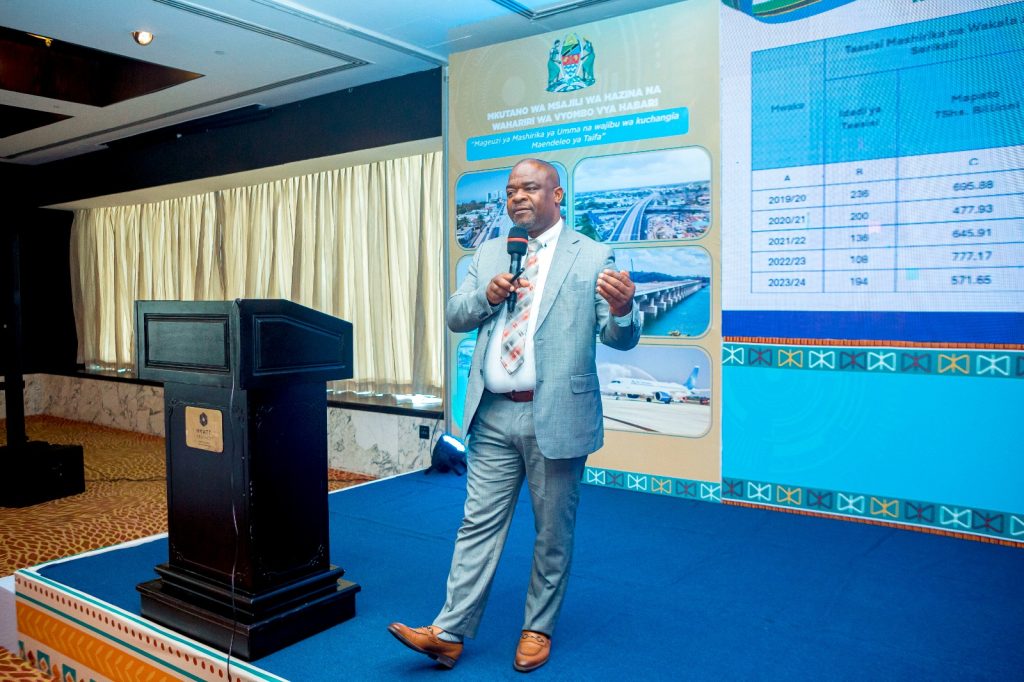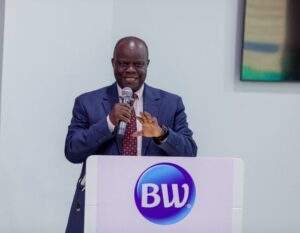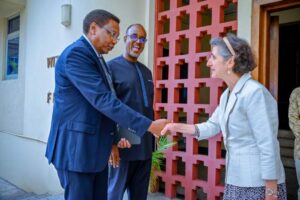By Business Insider Reporter
The Office of the Treasury Registrar (OTR) has set an ambitious target to collect TSh1 trillion in non-tax revenue for the 2024/25 financial year.
The among represents a 30.4 percent increase from TSh767 billion collected in the previous year.
Treasury Registrar, Mr. Nehemiah Mchechu, made the announcement during a media engagement breakfast with editors in Dar es Salaam on Monday, June 2, 2025.
He revealed that as of that morning, nearly TSh900 billion had already been collected from approximately 200 public institutions and companies in which the government holds minority shares.
“As of today, June 2, our office has collected about TSh900 billion in non-tax revenue. We hope that those who have not come to us will do so in the next few days so that on Dividend Day on June 10 our collections will surpass TSh1 trillion mark,” Mr. Mchechu stated.
Key revenue streams
The Treasury Registrar’s Office mobilises non-tax revenue from several sources, including dividends from public corporations, mandatory contributions amounting to 15 percent of gross revenues and loan repayments and interest from on-lent funds.
Other sources which makes non-tax revenue include revenue from the Telecommunications Traffic Monitoring System (TTMS) and several other statutory fees and levies.

Among these, Mr. Mchechu notes, dividends remain the single most important component, contributing a significant share of the total.
Urgent call for compliance
To meet the ambitious target, Mr. Mchechu issued a clear directive to all remaining public institutions and firms that have yet to remit their dividends.
“All institutions that have not yet submitted their dividends must do so this week. By Dividend Day, scheduled for June 10, no entity should be in default,” he stressed.
Dividend Day is an annual event organised by the OTR to recognise high-performing public enterprises and formally announce total collections for the year.
Digital overhaul driving results
According to Mr. Mchechu, the remarkable growth in non-tax revenue collections is directly linked to robust institutional reforms and digital integration under his leadership.
The OTR has rolled out several transformative initiatives, including Integration of the Planning and Budgeting System (PlanRep) with the Electronic Records Management System (ERMS) and e-Watumishi, the government’s human resources system.
Other initiative is upgrading of the MUSE system, which now enables real-time financial reporting and expenditure tracking across public entities.
These reforms are part of a broader public sector modernisation drive, aligned with President Samia Suluhu Hassan’s vision of an integrated, digital-first government.
“The harmonisation of these systems has dramatically improved transparency, efficiency, and accountability in public financial management,” Mchechu emphasised.
A new culture of accountability
Beyond the systems, the Treasury Registrar highlighted a renewed culture of accountability across public institutions, fueled by stricter monitoring and performance-based evaluations.
The OTR now requires quarterly reporting from government-owned firms and has tied executive and board-level performance to timely financial disclosures.
These efforts form part of a wider campaign to reposition state-owned enterprises (SOEs) not merely as service providers but as viable commercial entities that contribute meaningfully to national development.
Looking ahead
If the TSh1 trillion target is achieved, it will set a new benchmark in Tanzania’s domestic resource mobilisation efforts, easing pressure on tax-based revenue streams and supporting key development initiatives.
For Mr. Mchechu, this is not just about revenue – it’s about redefining the value of public ownership.
“We are custodians of national assets, and our job is to ensure they generate value for all Tanzanians,” he concluded.








